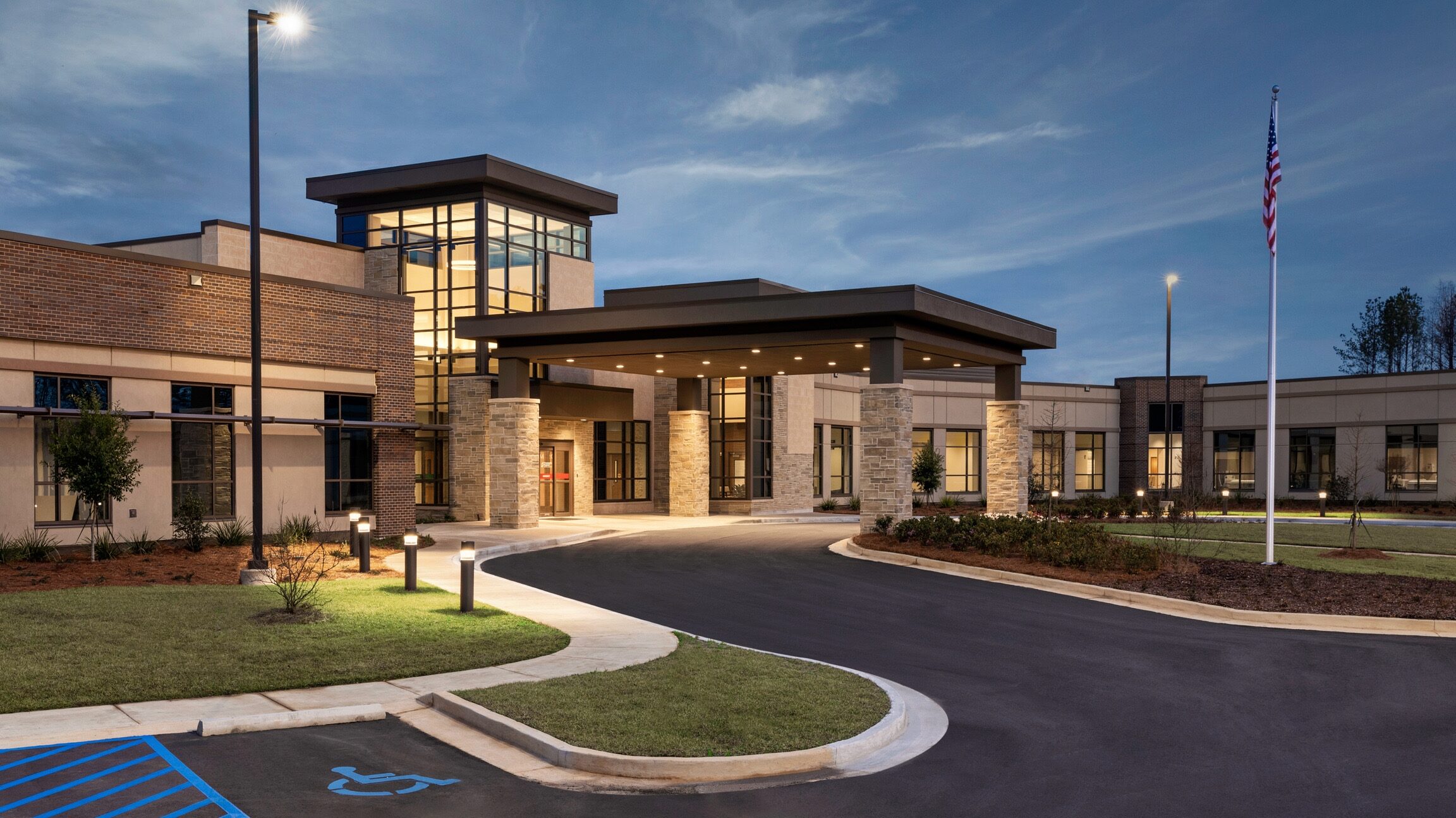Thomasville Mayor Sheldon Day was in Washington D.C. on Tuesday, his seven trip on a quest to save his Black Belt city’s new hospital from closing.
It’s a fight to save lives, Day explained to APR by phone on Tuesday.
The $40 million 29-bed Thomasville Regional Medical Center (TRMC) opened on March 3, 2020, just as the COVID pandemic was beginning, but it’s on the verge of closing because, while it suffered from profit losses due to the COVID pandemic as most hospitals did, it hasn’t received the same federal COVID aid, and time is running out.
Calculations used by the federal government to determine payments to hospitals from the CARES Act funds requires the comparison of 2019 revenues to 2020 revenues. New hospitals have no previous years revenues from which to compare, however, leaving the Thomasville hospital, and two other newly-opened hospitals in the U.S., in the lurch.
The federal government’s formula wasn’t designed to intentionally put the three hospitals in a dangerous bind, Day explained, but it did regardless.
“It’s nobody’s fault. We just need somebody to fix it,” Day said.
Rural hospitals such as the Thomasville Regional Medical Center played a critical role during the COVID surges by providing care for those in need, freeing up space in larger hospitals to handle the rush of COVId patients, explained Dr. Don Williamson, president of the Alabama Hospital Association, speaking to APR by phone Tuesday.
The Thomasville hospital also cut the travel time to access health care for those living in the Black Belt, Williamson said, many of whom had to drive to neighboring Baldwin County, or more than 100 miles to Mobile.
“We have lost five rural hospitals in the last decade. We don’t need to lose another,” Williamson said.
Researchers with the University of Alabama’s Education Policy Center in a report published in October found that people living in Black Belt Black counties have less access to physical health care, and three of those counties have no hospitals.
Day said the new hospital has opened up all new access to critical health care for the area’s residents, including the critical ability to diagnose patients using state-of-the-art medical equipment, something other hospitals in the area couldn’t afford to provide.
“We want to take healthcare in the black belt of Alabama to a whole new level. A level that is never, ever seen before,” Day said
Williamson in a letter to President Joe Biden on March 28 wrote that the Thomasville hospital serves an area of the Black Belt – one of the poorest areas in the U.S. – where 70 percent of the residents are eligible for Medicare or Medicaid, and over 65 percent there are a minority.
“It was and continues to be an accomplishment of great pride for the community, the region, and the state,” Williamson wrote, noting that its one of only three hospitals in the country that opened just as the pandemic was beginning, all struggling with the same COVID relief funding issues, although the Thomasville hospitals is the only rural hospital of the three.
Williamson wrote that without the federal aid the Thomasville hospital and the Health Care Authority Corporation of the City of Thomasville initially relied on reserve funds, additional borrowed money and public funding “as it waited on expected federal funding.”
U.S. Rep Terri Sewell and staff from the U.S Health and Human Services worked to resolve the matter, and after numerous discussions believed the issue would be resolved, but in January 2022, when the Thomasville hospital received a deposit from Health and Human Services, instead of getting the expected $7.2 million net loss attributable to COVID the hospital got a $16,000 “bonus payment,” Williamson wrote.
“Based on discussion with HHS, it appears the method of calculating TRMC’s losses did not follow some of HRSA’s own published guidelines,” Williamson wrote. “As a result, the new, USDA-backed, Thomasville hospital that serves one of the most impoverished regions of the country is on the verge of closing.”
The Thomasville hospital is a public-private partnership, jointly with the City of Thomasville, which dedicated an additional $900,000 in tax revenue for the hospital, and received financing from the Department of Agriculture Office or Rural Development and funding from the Health Care Authority Corporation of the City of Thomasville.
Day planned to meet over the next two days with members of Alabama’s congressional delegation, as well as members who serve the areas where the other two affected hospitals are located – Los Cruces, New Mexico and Derby, Kansas.
Day said the matter has nearly been corrected before, through legislation drafted by U.S. Sen. Richard Shelby, R-Alabama, but lawmakers in Congress pulled that piece of legislation from a Ukraine aid bill at the last moment.
Day said in another instance the U.S. Health and Human Services deputy secretary told him that “Thomasville has nothing to worry about. They’re gonna get taken care of,” but when a round of relief payments were sent to hospitals Thomasville was in fact left out.
“We’ve been that close three or four times,” Day said.
Most of those in the federal agencies who learn of the problem truly understand the hardship the Thomasbille hospital is in, Day said, but the bureaucracy makes it difficult to fix quickly. Three weeks ago Day spent hours talking with a staff member at the Health Resources and Services Administration.
“Finally, I just looked at her and said ‘Don’t you understand? That formula disenfranchised us. It is going to cause our hospital to close if we don’t get this relief. People are going to die if we don’t fix this.’,” Day said.
Day asked the staff member to advocate on the hospital’s behalf, pleading with her to help, and said “she started crying.”
She finally got it, Day explained, but the fix still hasn’t come through.
The Thomasville hospital has until May to submit a request for reconsideration to the federal government. Day also continues to hope that someone in the White House will hear the pleas for help and intervene to save the hospital.
“We’re dealing with bureaucracy,” Day said.


















































